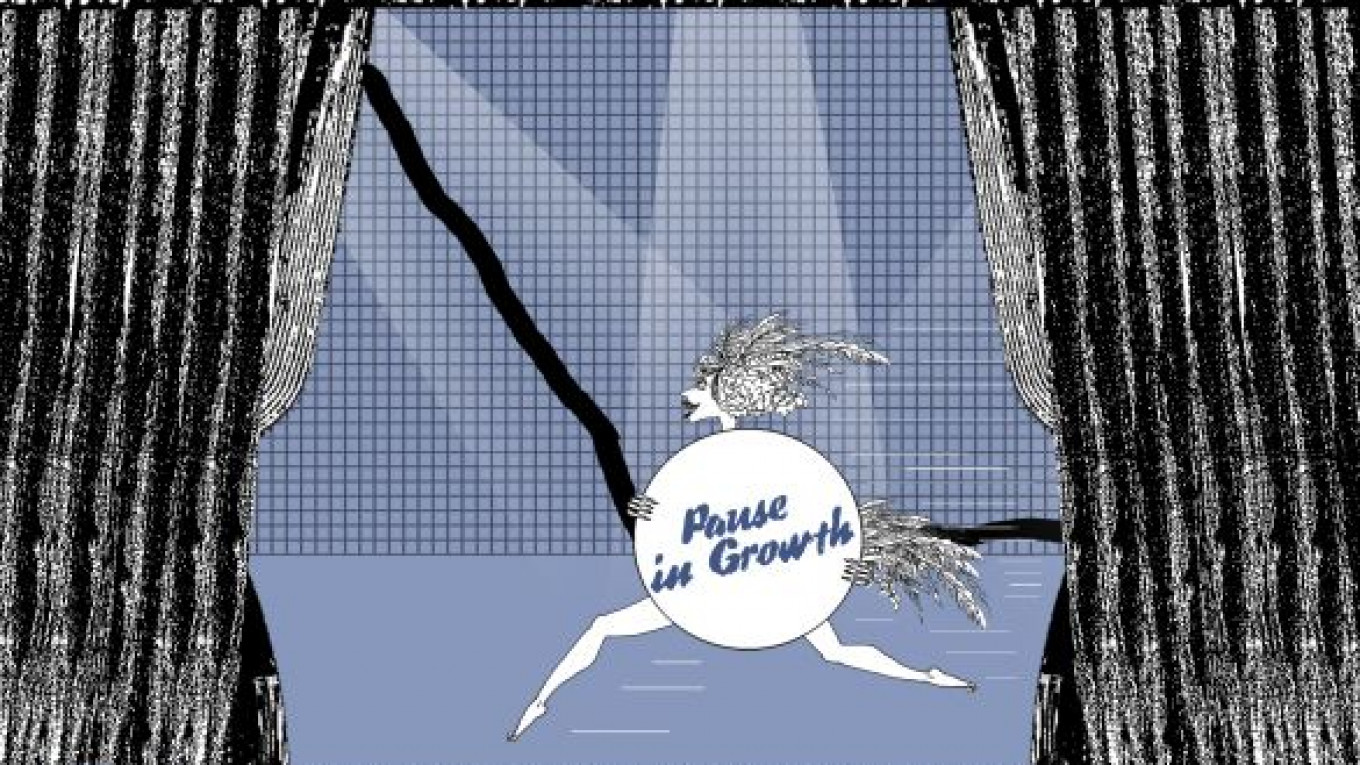Every so often, government officials come up with new terms to avoid alarming the public. Despite a decline in industrial production, massive capital flight, a weakened ruble and growing pessimism on the stock exchange, they stubbornly refuse to use such words as "downturn," "crisis" or "recession." Instead, they have enriched the Russian language with a new expression: "a pause in growth." Several months ago, as Western Europe was plunging into crisis, Russian officials boasted that the domestic economy was showing positive growth rates. Now, when the situation is deteriorating before our eyes, they pretend nothing is happening.
Russian authorities made a serious error when they gloated over the economic problems incurred by Western European nations. This Kremlin conducts roughly the same economic policy as the European Union, and so it was inevitable that Russia would eventually experience the same negative consequences. In some ways, Russia's policies are even worse than those employed by Western leaders. For example, both Russian and Western governments are making deep spending cuts on health care and education, dismantling what remains of the welfare state and privatizing elements of the social infrastructure. Both are eliminating support to local governments and forcing them into debt. The difference is that Western states are responding to an acute shortage of funds, whereas Russia's liberal economists have convinced leaders to implement the same measures even when the budget is overflowing with money.
The collapse of the banking sector in Cyprus pushed the mounting but hidden problems in the global economy into the open. Cyprus has been able to avoid total disaster, but Russia's current economic woes can be traced to a different problem. For five years, analysts and business professionals have been reading signs in stock market data indicating fluctuations in the price of oil, warning that it could one day develop into a full-blown crisis.
If Russia's economic decline was based solely on a drop in global oil prices, as it was in 2008, it would have been less alarming than what is happening today. But the current drop in production is due to deep structural imbalances in the Russian economy, problems that no amount of petrodollars can rectify. This recession was brought on by a depleted domestic market, outdated manufacturing equipment, a lack of investment in industry and the high cost of credit.
Russia's accession to the World Trade Organization only aggravated the situation. It led to serious problems in the agricultural sector and a reduction in industrial orders. Businesses experienced additional difficulties obtaining loans when financiers slowed lending as they waited to see how manufacturing companies would adapt to the new circumstances. Taken alone, many of these difficulties would ordinarily be temporary or "transitional," but combined with more fundamental economic troubles, they tend to exacerbate the overall problem.
The Moscow leadership is watching events with Olympian calm, apparently hoping that the economic downturn will die out on its own, just as the previous economic growth also dried up. They prefer weakening the ruble to even the simplest and most conservative measures, such as lowering the Central Bank's interest rate on credit. Their logic employed is simply mind-boggling. They argue that the interest rate cannot be lower than the rate of inflation, which is expected to hit 6 percent. But for some reason, they do not realize that expensive credit and a weak ruble will themselves accelerate inflation, especially when they occur simultaneously.
At the Moscow Economic Forum in late March, opponents of WTO accession and critics of the current economic policy lashed out at the government. In early April, liberal economists who gathered at the Higher School of Economics made their own diagnosis of the problem. They said the crisis was caused by bureaucracy, the judicial system and the authorities. In effect, two separate approaches for economic recovery have been formulated by society. Liberals propose continuing the current economic course and complementing it with much-needed political reforms. Their opponents argue that serious changes are needed, but they look to the same old political leadership to implement them.
Meanwhile, the authorities' inability to make needed corrections to economic policy is clearly the result of the government's internal workings, the rules governing the bloated state bureaucracy, the existing balance of powers within the ruling elite and the closed nature of authority that makes it impossible for the lower classes — or even the middle class — to influence the decision-making process.
The machinery of government must be changed, and the country's political life must become democratic. Leaders should not continue pursuing economic and social policies that 75 percent of Russians despise. Those changes should be implemented so that those hated policies can be decisively reversed in accordance with the will of the majority.
Boris Kagarlitsky is the director of the Institute of Globalization and Social Movements.
A Message from The Moscow Times:
Dear readers,
We are facing unprecedented challenges. Russia's Prosecutor General's Office has designated The Moscow Times as an "undesirable" organization, criminalizing our work and putting our staff at risk of prosecution. This follows our earlier unjust labeling as a "foreign agent."
These actions are direct attempts to silence independent journalism in Russia. The authorities claim our work "discredits the decisions of the Russian leadership." We see things differently: we strive to provide accurate, unbiased reporting on Russia.
We, the journalists of The Moscow Times, refuse to be silenced. But to continue our work, we need your help.
Your support, no matter how small, makes a world of difference. If you can, please support us monthly starting from just $2. It's quick to set up, and every contribution makes a significant impact.
By supporting The Moscow Times, you're defending open, independent journalism in the face of repression. Thank you for standing with us.
Remind me later.






